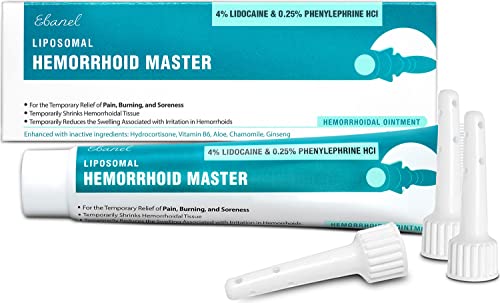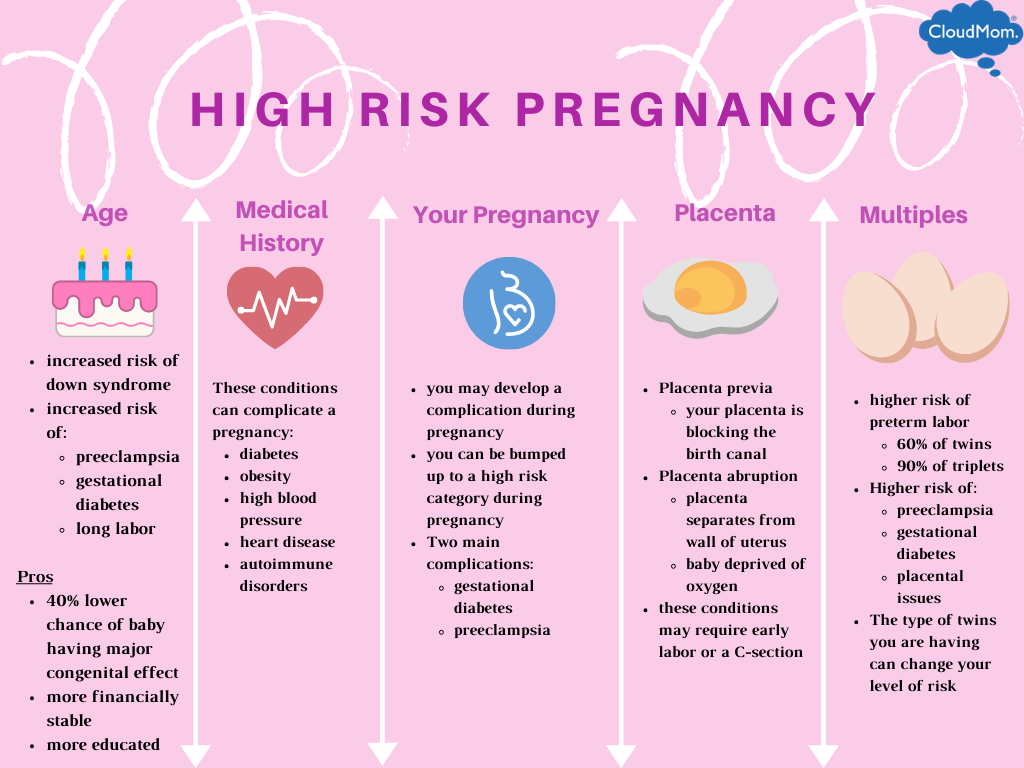19 Weeks Pregnant
- July 15, 2021
- by Melissa Lawrence
Hi mamas and dadas-to-be! Welcome to Week 19! If you’re anything like me, you’re looking ahead to next week: the halfway mark in your pregnancy. (Since my babies came earlier, some as early as 35 weeks, my halfway mark feels a bit earlier, though.) But don’t overlook the fun, gross, and exciting things that are happening this week! Here’s one hint to what your baby is experiencing this week: cheese! Say what now? Let’s dive in!

19 Weeks Pregnant: Recurring Symptoms
19 Weeks Pregnant: Common Symptoms
Which symptom has been following you around, aggravating you just when you find a moment of relief? My biggest aggravator has been my leg veins as well as a new pressure between my upper legs that is intense in the late afternoon. I’m trying to keep my legs elevated when I’m lying down to help decrease the swelling in the veins and pressure in my inner thighs. Ouch and yuck!
Pregnancy Hemorrhoids
Hemorrhoids are veins that swell within your anus — sounds painful, right? Unfortunately, hemorrhoids are common during pregnancy. Hemorrhoids develop when you push too hard while pooping. Hemorrhoid creams can help you find relief. To prevent hemorrhoids, stay hydrated — constantly drink lots of water — and try to avoid straining when on the toilet. Consider purchasing a stool for your feet, which can help reduce the need to strain while making a bowel movement.

Motherlove Mom's Bottom Balm (1 oz) Organic Herbal Salve w/Witch Hazel for Bottoms During Pregnancy & Postpartum —Non-GMO Ointment


Preparation H Hemorrhoid Cream with Aloe for Multi-Symptom Relief - 1.8 Oz Tube


Mommy's Bliss Soothing Hemorrhoid Cream | Quickly Relieves Pain & Itchiness, Multi-Symptom Relief | 1 oz


Intense Hemorrhoid Treatment 100% Natural Hemorrhoid Cream & Fissure Ointment Control Organic Lavender Arnica Witch Hazel Fast Healing Maximum Strength, Best with Thena Sitz Bath Soak for Women Men


Natural Organic Herbal Hemorrhoid Cream Ointment, Hemorrhoid Shrinking Treat, Remover, Anus Anel Fissure, Adults Pregnant Postpartum Women, Fast Acting, 10 PCS New Disposable Packaging, Hygienic Safe


Doctor Butler’s Hemorrhoid & Fissure Ointment Cream with Lidocaine and Phenylephrine HCI for Fast Acting Relief of Pain, Swelling, Discomfort, and Itching (1 oz.)


Apipharma Hemopropin - Natural Hemorrhoid Care Ointment - Ideal for Pregnancy - Hemorrhoid Cream Free from Lidocaine, Parabens, & Steroids - for Rectal Mucosa Irritation Support (0.7oz)


Ebanel Hemorrhoid Treatment Ointment, 1.6 Oz Lidocaine Anal Fissure Anesthetic Cream for Pain, Burning, Itching, Swelling, Bleeding with Phenylephrine, Hydrocortisone, Aloe, Chamomile, Vitamins


WholeNest Less Than A Day - Hemorrhoid Relief Essential Oil Serum - Hemorrhoids Treatment Oil for Rapid Relief from Swelling, Burning & Itching of Painful Hemorrhoids & Postpartum Fissures 15ml


TUCKS Medicated Cooling Pads, 100 Count – Pads with Witch Hazel, Cleanses Sensitive Areas, Protects from Irritation, Hemorrhoid Treatment, Medicated Pads Used By Hospitals


Stages of Fetal Development: Baby Growth & Size at 19 Weeks
At week 19, your baby weighs 8 ounces and is 6 inches long, about the size of a mango. To explain the hint I gave you in the intro, your baby will be coated in vernix caseosa during week 19, which literally translates to cheesy varnish in Latin. Now, as much as I’d love to be covered in cheese (flashback to that weird pregnancy dream!), that’s not the point of vernix caseosa. This varnish serves the important function of protecting your baby’s skin from the amniotic fluid. Imagine floating around in a tub all day … yeah, no thanks! In addition to preventing your child from becoming a prune, vernix caseosa helps grease your birth canal, so that your baby can shoot out with ease during labor.
In other less exciting, yet intellectually stimulating news, your baby’s neurons are continuing to form connections and the main passageways of your baby’s lungs — the bronchioles — are starting to form. Brown fat starts to form around week 19, which is vital in regulating your baby’s temperature after birth since the outside environment will be a lot colder!


|
Fun Fact About Pregnancy Couvade Syndrome, also called sympathetic pregnancy, is a condition in which your partner experiences some of the same pregnancy symptoms you are currently experiencing! You truly are in this together! |
My Pregnant Belly Progression
My bump feels bigger this week! I’m out of my jeans and not wearing anything I used to wear. I’ve noticed that I have to stretch when I sit down in a chair because it feels like my stomach is too cramped. I also get cramps when I sit up too fast. However, exercising nearly each day has been helping to keep the worst of my symptoms at bay. Check out my 19 weeks pregnant belly!


What Exactly Does a High-Risk Pregnancy Mean?
If you were recently diagnosed with a high-risk pregnancy, before you drive yourself crazy with worry, read this section. Trust me, I’ve had five high-risk pregnancies and am currently more than halfway through my sixth high-risk pregnancy (due to my advanced maternal age). While the term high-risk sounds scary, essentially it means that you are at an increased risk for developing a complication. Many high-risk pregnancies are uneventful and nothing dangerous ever occurs; yet, extra scrutiny is warranted given what could happen. Factors that can place your pregnancy in the high-risk category include: having a geriatric pregnancy (35+), prior medical problems, the number of babies you are having, where your placenta is residing, and how your pregnancy is progressing!
Remember, a large majority of pregnancies will be fine, so unless your doctor tells you otherwise, don’t stress out too much!


Your Pregnancy at 19 Weeks: Prenatal Appointments
The following prenatal tests are available this week:
Amniocentesis
Cell-free DNA screening (cfDNA)
Cordocentesis
Second Trimester Quadruple Screening (Quad Screen)
Week by Week Pregnancy Food Guide
Drink tons of water and eats lots of fruit and veggies, whether you are pregnant or not. For more detail on what to eat and not eat while pregnant, please refer to Week 4 and Week 5.
|
Quick, Healthy Meal Tip Bell Pepper Salad: Chop up one bell pepper and one onion and sauté in olive oil until soft. Put on a bed of mixed greens and add desired toppings. Combine 1 teaspoon of balsamic vinegar, 3 teaspoons of olive oil, oregano, salt, and pepper and add to salad. Iron During pregnancy, your body needs an increased amount of iron to supplement the production of blood. To get lots of iron in your diet, eat these foods consistently: whole wheat bread, broccoli, baked potatoes, spinach, and tofu. |


ONE A DAY Women’s Prenatal Advanced Complete Multivitamin with Brain Support* with Choline, Folic Acid, Omega-3 DHA & Iron for Pre, During & Post Pregnancy, 60+60 Ct (120 Total) (Packaging May Vary)


Ritual Prenatal Vitamins: Folate & Choline for Neural Tube Support, Omega-3 DHA for Fetal Brain Development, Iron, Calcium-Helper D3 & K2, Non-GMO, Citrus Essenced, 30 Day Supply, 60 Vegan Capsules


Ritual Natal Choline Supplement, 550mg, Supports Baby’s Cognitive Function When Taken During Pregnancy and Choline Content in Breastmilk*, 30 Day Supply


ISOMUM Electrolytes: Pregnancy, Breastfeeding & Postpartum Recovery - Immunity, Lactation, Energy Drink. Powerful Formula with Essential Vitamins & Trace Minerals - Advanced & Gentle Help for Moms.


MaryRuth Organics | Liquid Iron Supplement Prenatal & Postnatal for Pregnant & Lactating | Iron Deficiency | Immune Support | Sugar/Gluten Free | Vegan | Non-GMO | 15.22 Fl Oz


Pink Stork Total Prenatal Vitamins with DHA, Folate, Iron, Choline, and Vitamin B12 - Prenatals for Women to Support Fetal Development, Pregnancy Must Haves - 60 Capsules, 1 Month Supply


Olly The Essential Prenatal Gummy Multivitamin, 30 Day Supply ( Gummies), Sweet, Folic Acid, Vitamin D, Omega 3 DHA, Chewable Supplement, White Citrus, 60 Count (Pack of 1)


Conception Fertility Supplements for Women – Aids Ovulation, Hormonal Balance, & Regular Cycles – Prenatal Vitamin Support with Myo-Inositol, Folate, Folic Acid, Vitex – 60 Vegetarian Soft Capsules


Needed. Prenatal Choline - Optimal Prenatal Choline Add On, 250Mg Talc-Free Filler, Heavy Metals Free, Brain Development in Utero/Early Life, with VitaCholine, Non-GMO, Allergen Free 60 Capsules


THORNE Basic Prenatal - Well-Researched Folate Multi for Pregnant and Nursing Women Includes 18 Vitamins and Minerals, Plus Choline - 90 Capsules - 30 Servings
How Many Months Is 19 Weeks?
Doctors typically don’t measure the length of pregnancy using months, because each month has a different number of days and weeks, but in case you are wondering 19 weeks means that you are around 5 months pregnant.
Week 19 Pregnancy Checklist
- Prepare for your mid-pregnancy ultrasound (wowsa, amiright?!)
- Research the option of cord blood banking after delivery
- If you are experiencing hip pain, buy a body pillow! Or try yoga as I did with an instructor from Melbourne
- Research breast pumps
Resources
- What to Expect & What to Expect When You’re Expecting – 5th Edition (2016)
- The Bump
- Baby List
- Parents.com
- Healthline.com
- WebMD
- The Mama Natural Week to Week Guide to Pregnancy & Childbirth (2017)
- Mayo Clinic’s Guide to a Healthy Pregnancy – Second Edition (2018)
- American College of Obstetricians and Gynecologists



Comments